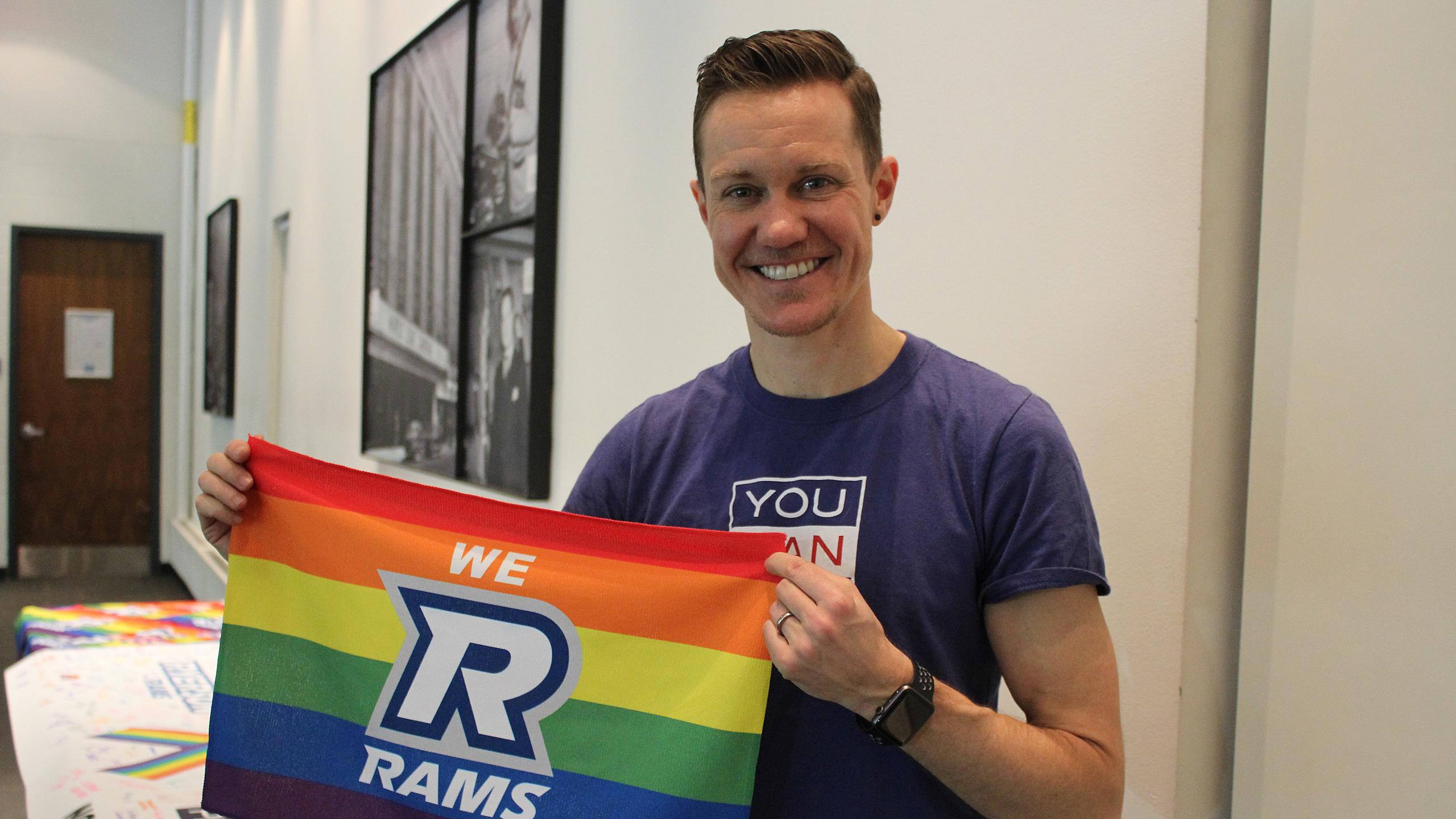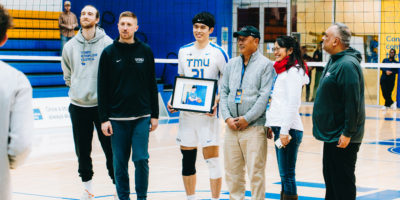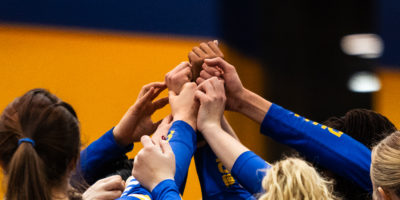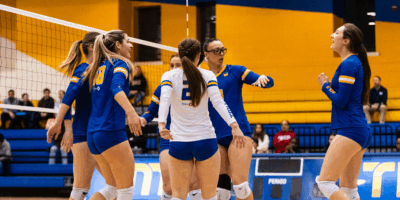By Maggie Macintosh
In order to create a safe athletic environment, the first openly trans man to make Team USA told Ryerson’s varsity teams that athletes have to adjust their smack talk.
Chris Mosier, an All-American duathlon competitor and trans advocate, spoke to dozens of student-athletes during seminars about creating inclusive spaces at Ryerson this week, focusing on the often-homophobic nature of the language used in “trash talk.”
“When we’re talking trash about an opposing team, about another player, or we’re talking about somebody who’s underperforming, those words are inherently homophobic—and they’re sexist most of the time,” he said during the second of three seminars held Monday night.
“Those words have become a part of sport-culture,” he added. “But they don’t need to be.”
Mosier talked about the importance of language in shaping safe spaces for athletes and You Can Play, a non-profit whose mission is to ensure safety and inclusion of LGBTQ+ athletes, coaches and fans. Varsity athletes were required to attend one of the You Can Play vice president’s seminars, which took place at the Mattamy Athletic Centre on Jan. 15 and 16.
“If you can play, you can play, and it doesn’t matter what your background is, where you’re from, what you believe in, who you love, how you identify,” he said.
Mosier said the way teammates lift each other up is universal, no matter their differences. But LGBTQ+ people are sometimes driven out of sport because it feels unsafe, he added.
The majority of people feel youth sport isn’t welcoming for LGBTQ+ people, said Mosier, citing “Out on the Fields,” a 2015 international study examining homophobia in sport. You Can Play contributed to the study, which polled 9,494 participants, of which roughly 26 per cent identified as straight. Only 1 per cent of respondents said homophobic jokes and humour “never occur” in sports.
Mosier told The Eye that battling homophobia in sports is a huge topic, so taking small steps to influence others around you is important to achieve wider change. That’s why he chooses to focus on language.
“By addressing language, we are giving people a tool and a starting point to become better allies and therefore, impact the spaces that they’re in,” he said.
Mosier defined terms including cisgender (a gender identity that refers to the gender that you were assigned to at birth) and LGBTQQS (the acronym for lesbian, gay, bisexual, trans, queer, questioning, and 2-Spirit) for the student audience.
“We can’t begin to have conversations if we’re not all using the same language,” he said.
Ailish Forfar, a forward on the Ryerson women’s hockey team, said that while the hockey team often has conversations about inclusion since many of team members are openly lesbian, gay and bisexual, she’s going to reflect on her language choices.
“The biggest thing I’m taking away, especially as captain of my team, is how to be a better ally,” she said Monday.
Forfar, a second-year sport media student, said she often hears casual homophobic remarks, like “that’s so gay.”
“All of us being here, on the same page, is a really great positive step for our team,” she said.
As for Ryerson as an institution, Mosier said he’s “really impressed” with the signs in the athletic facility’s restrooms, which have signs reading that, “At Ryerson we respect everyone’s right to choose the washroom appropriate for them.” The university’s decision to use these signs shows Ryerson is living true to its mission to create a sense of belonging for its student-athletes, said Mosier. Last semester, Ryerson held a panel about trans inclusion in sport with panelists including professional hockey player Harrison Browne.
In closing, Mosier asked the athletes to discuss one action they plan to take after the seminar. One told a friend they wanted to work on cutting the word “pussy” out of their vocabulary. Another said they are trying to stop using the word “pansy.”
“By us creating safer spaces, whether people want to come out or not, it helps them become better people, better teammates and helps them to focus on what they contribute to the game as opposed to worrying about what people might think about them,” Mosier said.












Leave a Reply